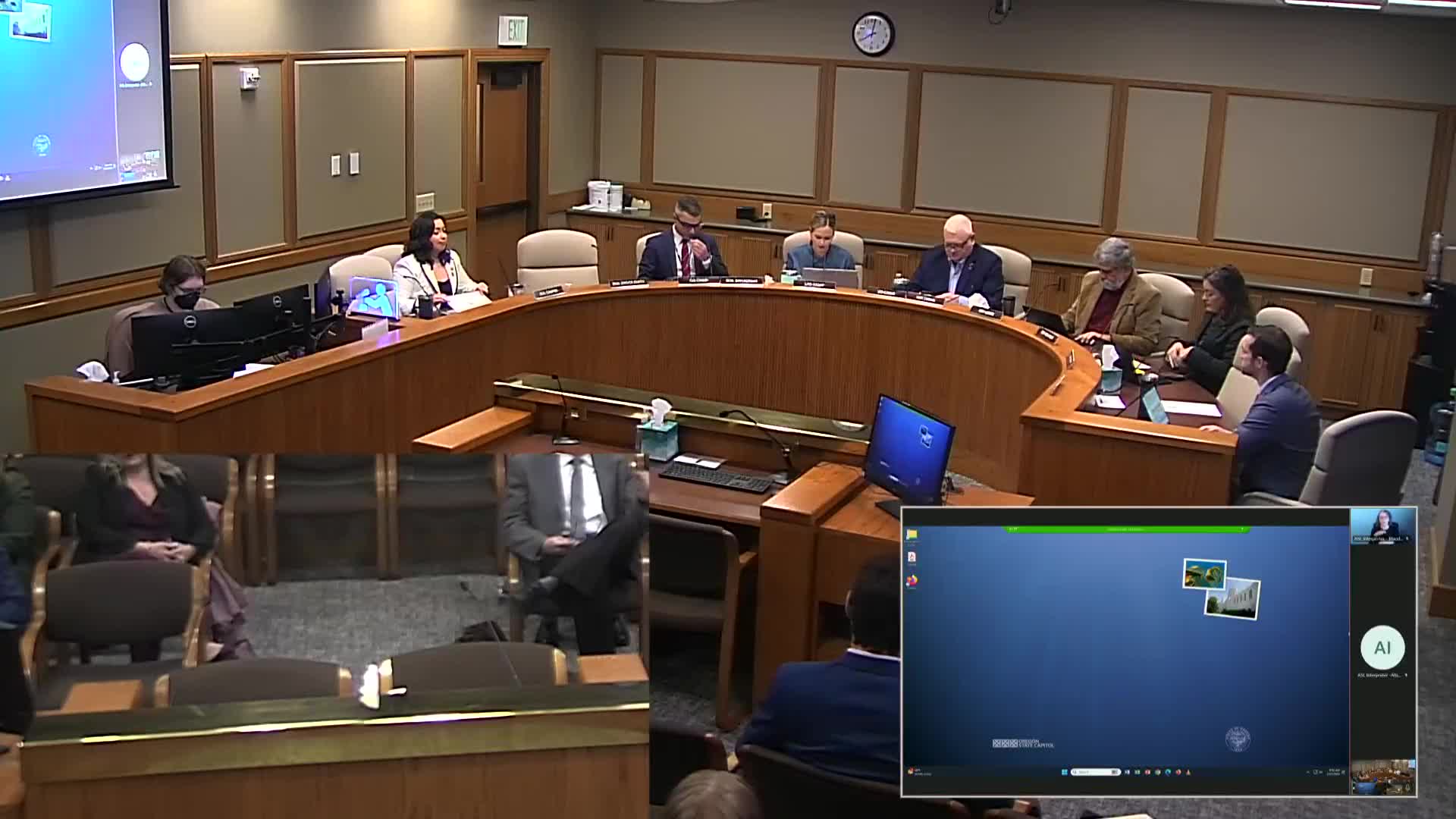Parole board warns it will miss 2026 registry-leveling deadline; seeks IT upgrade and legislative changes
Get AI-powered insights, summaries, and transcripts
Subscribe
Summary
At a Feb. 17 Public Safety Subcommittee hearing, the Oregon Board of Parole and Post‑Prison Supervision told legislators it cannot meet a December 2026 deadline to classify historic sex‑offender registrants, requested $100,000 for an IT modernization and proposed three bills to reprioritize leveling work.
Jonathan Bennett, an analyst with the Department of Administrative Services Chief Financial Office, told the Public Safety Subcommittee on Monday that the governor’s 2025‑27 budget maintains operations for the Oregon Board of Parole and Post‑Prison Supervision and includes an investment in an information‑technology upgrade.
"The 25‑27 current service level is approximately $45,000 more than the 23‑25 legislatively approved budget," Bennett said in his opening overview, and described the governor’s request as keeping the board near a steady funding level after one‑time projects phased out.
John Bailey, chairperson of the Board of Parole and Post‑Prison Supervision, and Dylan Arthur, the board’s executive director, told the subcommittee the agency faces several staffing and workload pressures that make meeting a statutory December 1, 2026, deadline to classify historic registrants unlikely.
"We are not going to meet that deadline," Bailey said, describing a backlog of unclassified registrants that the board is required to assign to one of three notification levels. The board reported approximately 12,615 registrants who remained unclassified as of Jan. 17, 2025.
Arthur described the board’s current capacity and the scale of the backlog. The board has six assessment specialists who each can complete about 22 static‑99R assessments per month, and the state receives roughly 100 new registrants a month. At current staffing the board estimates it would take roughly 396 months to classify the remaining historic registrants; with three additional assessment specialists that projection falls to about 132 months, and with nine additional specialists to about 60 months.
To address that mismatch, the board has three agency bills before the Legislature. Senate Bill 819 would allow the board discretion to resolve some petitions administratively instead of holding an in‑person hearing unless a victim, a district attorney or the attorney general requests a hearing. Senate Bill 820 would prioritize classification work by removing the requirement to level all pre‑2014 registrants while preserving classification for higher‑priority groups (for example, people with multiple separate conviction dates, an identified priority group of roughly 1,500 cases with 209 remaining). Senate Bill 821 would remove the statutory deadline to complete the leveling.
The board also asked for a $100,000 policy‑option package to modernize its parole board management information system by migrating to a Microsoft Dynamics platform. The agency said the upgrade should improve stability, security, customer service and data access.
Arthur corrected a previously reported recidivism figure during the hearing: "our recidivism rate is 4.6 percent," he said, after earlier materials had cited higher numbers that reflected a broader population. He said the 4.6 percent figure applies specifically to the small subset of people the parole board actually releases (about 8 percent of the prison population) and that the board will provide the underlying counts on request.
Committee members pressed the board for more data on denominators and offense types underlying the recidivism rate; the board agreed to provide the detailed counts and offense breakdowns later.
The agency also described other operational pressures: a county is exiting a contract to conduct Morrissey hearings for the board, which the board estimates will add roughly 180 hearings back to its central hearings officer workload (about 90 per year), and the board has seen a steady increase in Department of Justice legal costs tied to appeals and litigation (the presentation cited an average DOJ bill of $44,122 per month).
Victim services staff told the committee the board currently has more than 7,300 victims registered with its notification system and makes dozens of victim contacts each month. The board said it wants to be included in the Department of Corrections' VISOR victim‑notification system so victims can receive a single set of notifications across agencies.
Nate Gowiran, president of the Oregon Association of Community Corrections Directors and director of Washington County Community Corrections, provided public testimony in support of House Bill 5027 and the board’s funding request. "I urge you and your colleagues to pass House Bill 5027 to uphold Oregon’s commitment to a thriving, equitable, and resilient community," Gowiran said.
The subcommittee took no vote during the hearing. Staff said written testimony on HB 5027 would be accepted for 48 hours following the hearing.
The board provided several quantifiable program details during the presentation: about 17,500 individuals on supervision in the community, roughly 648 Morrissey violation hearings in the current biennium, about 220 petitions for relief or reclassification every biennium, more than 15,000 completed risk assessments, and the one‑time electronic conversion of roughly 3,000,000 paper files reported as completed and $546.23 under budget.
The board warned that budget reductions would disproportionately affect personnel: a 15 percent cut, the board said, would eliminate seven staff positions, 10 percent would reduce four positions and 5 percent would reduce three positions. That, the board said, could impair its ability to meet statutory duties.
